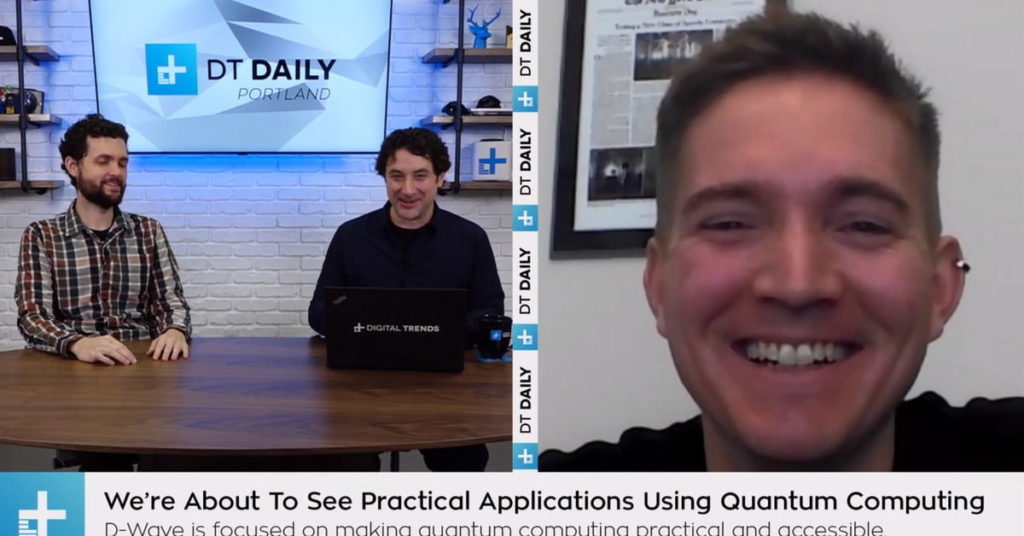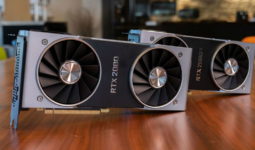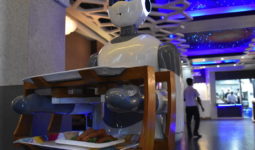D-Wave’s Murray Thom Talks About Quantum Computing
Quantum computing is one of the most exciting topics in the world of programming today, but it can be a difficult subject for a lot of people to fully wrap their heads around. Fortunately for laymen, a company called D-Wave Systems is working on making quantum computing more accessible. D-Wave’s Murray Thom appeared on DT Daily to talk about the mechanics of quantum computing and how D-Wave is building a platform for people to experiment on and share their discoveries.
How does quantum computing differ from normal computing? An ordinary computer stores information as “bits” with values of either 1 or 0. Amassing huge quantities of these bits can create more complex systems. As we explained in a previous feature on quantum computing, a quantum computer instead “works with information that’s stored in quantum bits, or qubits. A qubit can occupy a value of 1, 0, or any quantum superposition of the two states.” That enables a quantum computer to process vast quantities of information.
Thom likens a quantum computer to Mary Poppins’ magic bag, saying “she has that purse and she basically pulls out a lamp, an umbrella, and all sorts of things out of her purse, like a large rug. Quantum memory has that kind of capacity. It seems very, very small, but it can store a large amount of information. So what quantum computers can do for us … is that they can allow us to search enormous solution spaces and obtain answers quickly.”
One of D-Wave’s biggest efforts to advance quantum computing is a project called Leap, which Thom describes as “an environment for developers to come in and build and run their own quantum applications.”
“It provides them with immediate, real-time access to one of our live quantum computers,” Thom explains. “And by ‘real-time,’ I mean they can send instructions to the quantum computer and get answers in seconds, rather than minutes or at a scheduled time later in the week. It also brings together a lot of learning resources, so that people can get access to information that they need about how quantum computers work.”
Leap offers a level-playing field for people interested in learning the ins-and-outs of quantum computing, and it clears one of the field’s biggest hurdles for beginners.
“Part of the reason why I believe that quantum mechanics feels so weird to people,” Thom says, “is because we never get a chance to interact with it. Nothing in the world at our scale behaves quantum mechanically, and we designed a programmable quantum system so that people can actually interact with a quantum system and see, ‘Oh, this is how it behaves! This is how it’s reacting!’”
People interested in interacting with a quantum computer can join Leap through D-Wave’s website.
Digital Trends airs Monday through Friday at 9 a.m. PT, with highlights available on demand after the stream ends. For more information, check out the Digital Trends Live homepage, and be sure to watch live for the chance to win a $100 Amazon gift card, among other prizes.




